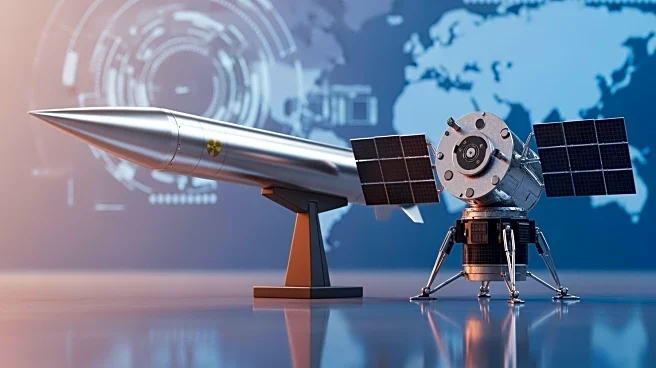What's Happening?
President Donald Trump has instructed the Pentagon to ensure that the United States is on par with Russia and China in terms of nuclear weapons testing. This directive aims to position the U.S. on an equal footing with these nations, potentially signaling
a shift in the country's nuclear strategy. The decision comes amid ongoing global tensions and discussions about nuclear capabilities. ABC News' Luis Martinez and contributor Mick Mulroy have reported on this development, highlighting the strategic implications of such a move. The order reflects President Trump's focus on maintaining and enhancing the U.S.'s military capabilities in the face of international competition.
Why It's Important?
The directive to match Russia and China in nuclear weapons testing is significant as it underscores the competitive nature of global military power dynamics. This move could have far-reaching implications for international relations and arms control agreements. By aligning the U.S. with the nuclear testing capabilities of Russia and China, the administration may be seeking to deter potential threats and assert its military strength. However, this decision could also escalate tensions and lead to a renewed arms race, impacting global security and stability. Stakeholders in the defense industry may see increased demand for nuclear technology and related services, while policymakers and international organizations might face challenges in negotiating arms control measures.
What's Next?
The Pentagon is expected to assess and potentially enhance its nuclear testing capabilities in response to President Trump's directive. This could involve increased funding and resources dedicated to nuclear research and development. International reactions may vary, with some countries expressing concern over the potential for heightened nuclear tensions. Diplomatic efforts may be necessary to address these concerns and prevent further escalation. Additionally, domestic debates on the ethical and strategic implications of nuclear testing are likely to intensify, influencing future policy decisions.
















